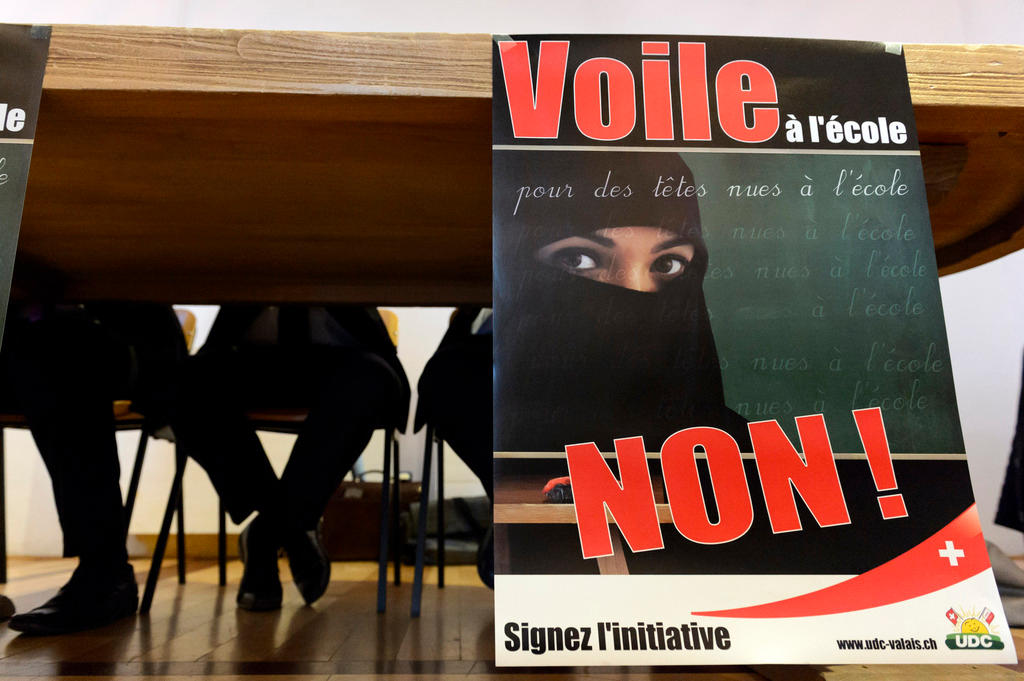
Cantonal initiative to ban headgear in schools ruled invalid

The Federal Court says that an initiative by the conservative right Swiss People’s Party to ban head coverings in schools in the southern canton of Valais is invalid. It confirms the decision taken by the Valais parliament.
The People’s Party proposal had attracted more than 4,000 backers after its launch in 2016. This amount of backing automatically triggers a vote, according to Swiss law. After its rejection by the cantonal parliament in December 2017, the party took the issue to the Federal CourtExternal link in Lausanne, Switzerland’s highest instance.
+ Read more about the original proposal
In a rulingExternal link made public on Friday, the Federal Court said that an initiative should not go against cantonal, national or international law.
Target clear
The court said that even if the initiative’s wording was vague – it calls for a ban on headgear such as hats, helmets and scarves – the implicit meaning was clear: it was meant to ban wearing veils or headscarves. This was clear from the poster campaign during signature collection for the initiative, which featured a picture of a woman wearing a veil and the slogan “no to headscarves in schools”. The press release at the beginning of the campaign also dealt with this issue.
This means that most people signed up on the understanding that the initiative would ban headscarves in schools, the court said.
Judges also pointed to the initiative going against the freedom of religion and conscience, as wearing a headscarf is a sign of religious belief that is protected by the constitution. Limiting a pupil in their religious belief would go against this principle, it said.
Furthermore, the initiative was formulated in such a way that it did not give the Valais cantonal parliament a way of making a proposal on the issue that would have respected higher law, they added.
Swiss debate
This is not the first time the headscarf issue has been debated in Switzerland.
In 2015, the Federal Court ruled that the local authorities of St Margrethen, in eastern Switzerland, could not ban hijab head coverings, arguing that wearing a headscarf was not an obstacle to effective teaching or learning.
Italian-speaking Ticino is the only canton which has introduced a total face-covering ban in public places, while cantons Zurich and Solothurn have rejected one.
In addition, a group of rightwing politicians is trying to bring about a nationwide headgear ban in Switzerland. The move has been rejected by the Swiss government.

In compliance with the JTI standards
More: SWI swissinfo.ch certified by the Journalism Trust Initiative






























You can find an overview of ongoing debates with our journalists here . Please join us!
If you want to start a conversation about a topic raised in this article or want to report factual errors, email us at english@swissinfo.ch.